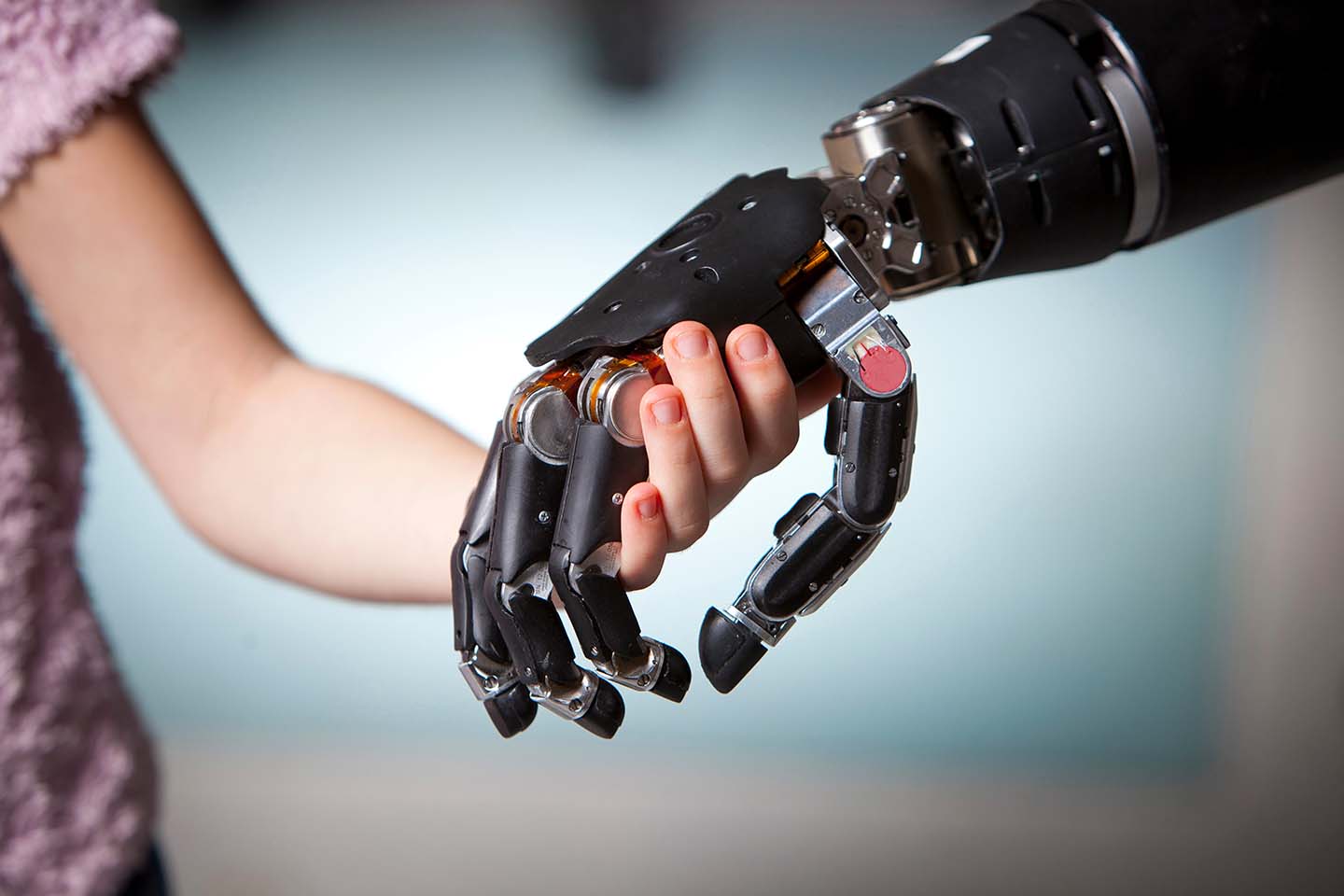Press Release
Johns Hopkins APL to Teach Children of Wounded Warriors About Prosthetics Using Virtual Reality
Mon, 06/06/2016 - 11:28
The Johns Hopkins Applied Physics Laboratory in Laurel, Maryland, has received a $375,000 grant from the Office of Naval Research to use virtual reality to educate the children of wounded warriors in the use of prosthetics, and to stimulate interest in STEM topics.
The grant, awarded to APL’s Science, Technology, Engineering and Math Program Office, is geared to children in elementary, middle and high school with parents or relatives who are wounded warriors. The program will use a modified version of a virtual integration environment training platform APL developed to help amputees adapt quickly to operating its revolutionary Modular Prosthetic Limb.
Called Connecting STEM Outreach Now Using VIE Education for Youth, or CONVEY, the program will teach children about topics from biology to engineering.
“Our objective is to use the virtual training platform to enhance each child’s understanding of how STEM concepts and products are being used to enable personal independence, mobility, and human interaction for their loved ones,” said Dwight Carr, APL STEM program manager. “It’s an engaging and interactive way to expand the use of the technology, while helping both the service members and their families.”
APL subject matter experts in prosthetics and the virtual training platform, along with members of the STEM Program Management Office, will develop hands-on learning demonstrations for students and multiday workshops, instructional sessions and follow-on activities. APL will also design outreach efforts using their experience in STEM activities and instruction. The grant award from ONR will cover technology and curriculum development and a series of workshops over a one-year period.
Revolutionizing Prosthetics is an ambitious multiyear program, funded by the Defense Advanced Research Projects Agency (DARPA), to create a neurally controlled artificial limb that restores near-natural motor and sensory capability to upper-extremity amputee patients. APL leads an interdisciplinary team consisting of other Johns Hopkins institutions, government agencies, universities and private firms to implement DARPA’s vision of providing the most advanced upper-extremity prosthesis.
